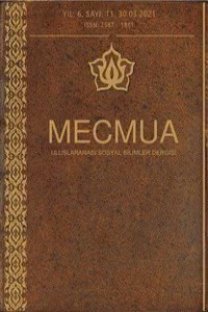Yapay Zeka Gazeteciliği ve Yaratacağı Sorunlar
İletişim, insan tabiatının en ayırıcı bir özelliğidir. İnsanlık tarihinin ilk dönemlerinde çok kısıtlı ve sınırlı olan insan iletişim yöntemleri, matbaanın icadından sonra, gelişmeye başlamıştır. Hatta haberleşme alanında adeta çığır açılmıştır. İletişimin daha da yaygınlaşmasıyla; dünyanın çeşitli ülkelerinde olduğu gibi; o zamana kadar ülkemizde de daha çok alaylı (usta–çırak) yoluyla yürütülen medya profesyonelliğinde, eğitimli gazeteci yetiştirmek için, bir eğitim seferberliğine doğru gidilmiştir. Türkiye’de 1948 yılından itibaren çeşitli isimlerle açılan gazetecilik okullarında yetişen eğitimliler sayesinde, günümüze dek medya gelişerek, iletişim alanında büyük bir yol almıştır. Ancak son yıllarda teknolojinin gelişmesiyle; yaşamımızın birçok alanına giren ‘Yapay Zekâ Robotları’, medya sektörüne de girmeye başlamıştır. Özellikle Microsoft’un girişimleriyle ortaya çıkan ‘Yapay Zekâ Gazetecileri’, son dönemde dünyanın birçok yerinde, medya çalışanlarını tedirgin etmeye başlamıştır. Uzmanlar ve bilim insanları, halen çalışmakta olan geleneksel gazetecileri uyararak, ‘Yapay Zekâ Gazeteciler’ konusunda tedbir almalarını önermektedirler. Bununla da kalmayıp; günümüzde üniversitelerde medya eğitimi almakta olan geleceğin gazetecilerini de uyarıyorlar. ‘Yapay Zekâ Gazeteciler’le baş edebilmek için, mevcut temel ders programlarının yanında; Kod Yazma, Yapay Zekâ gibi, birtakım yazılım dersleri de almalarını, medyadaki gelecekleri açısından önemli olacağını vurguluyorlar. Bu makalemizde yapay zekânın medya dünyasında getirebileceği bu sorunları uzmanların da değerlendirmesi ile ele alıp inceleyerek çözümler önermeye çalışacağız.
ARTIFICAL INTELLIGENCE JOURNALISM AND THE PROBLEMS IT MAY BRING
The history of communication is as old as the history of humanity. In various ways since the existence of humanity; we have chosen to communicate. This way, which is very limited, started to develop after the invention of the printing. In fact, a new era has been opened in the field of communication. With the spread of communication; as in various countries of the world; In media professionalism, which was carried out mostly through the regiment (master - apprentice) in our country until then, an education campaign was made to train educated journalists. The educated people who have been educated in the journalism schools opened under various names in Turkey since 1948, the media has developed and has taken a great stride in the field of communication. However, with the development of technology in recent years; 'Artificial Intelligence Robots', which have entered many areas of our lives, have also started to enter the media sector. 'Artificial Intelligence Journalists', which emerged especially with the initiatives of Microsoft, have recently begun to disturb media workers in many parts of the world. Concerned that robots will take their jobs, 'flesh-and-bones journalists' in the media have sought how to fight these 'iron-heap journalists'. Although this situation does not pose a threat for the Turkish media yet, experts and scientists warn the traditional journalists who are still working and recommend that they take precautions on the issue of 'Artificial Intelligence Journalists'. Not only that; they also warn future journalists who are currently studying media at universities. In order to cope with “Artificial Intelligence Journalists”, besides the existing basic curriculum; They emphasize that taking some software courses such as Coding and Artificial Intelligence will be important for their future in the media. In this article, we will try to suggest solutions by examining these problems that artificial intelligence can bring to the media world, with the evaluation of experts.
___
- 1. Altun, Abdulrezzak. (1999) “Journalism Education in Turkey”. Media Power and Democratic Institutions.
- 2. Celik, Kubilay (2020) Unpublished doctoral dissertation titled A Study on the Employment of Communication Faculty Graduates in the Media Sector. Maltepe University
- 3. Narin, Bilge (2016). Robot Journalism. New Media Mediated Changing Transforming Journalism and Journalism Practice Conference Speech, Ankara.
- 4. Christer, Clerwall (2014). Enter the Robot Journalist: Users' Perception of Automated Content. Karlstad University: Dept. of Geography, Media and Communication.
- 5. Crowley, David. and Heyer, Paul. Communication History, (2010). trans. Berkay Ersöz, Ankara: Phoenix Publications.
- 6. Dilmen, Necmi. E. (2007) “Internet Diaries-Blogs and Their Reflections on Journalism in the Framework of the New Media Concept”. Marmara Communication Journal.
- 7. Dimmick, J. vd. (2004) ‘Competition between the Internet and Traditional News Media: The Gratification Opportunities Niche Dimension’, Journal Of Media Economics.
- 8. Hobsbawm, Eric J. The Age of Capital 1848-1875. (2009). trans. B. Sina Sener, Ankara: Friend.
- 9. Segal, M. Erich of Il. (1995) How Human Became Human, Translated by Ahmet Zekerya, Say Publications, Istanbul.
- 10. Thompson John B. (2019) “Media and Modernity.” 2008. Trans. Serdar Ozturk, Istanbul: Red Publications.
- 11. Tokgöz, Oya. (2003) “Communication Education in Turkey: Evaluation of a Fifty-Year Past”, Journal of Culture and Communication 6, 1: 9-32.
- 12. Van Dijk, Teun (1988), News As Discourse, Lawrence Earlbaum Associates Publication, New Jersey.
